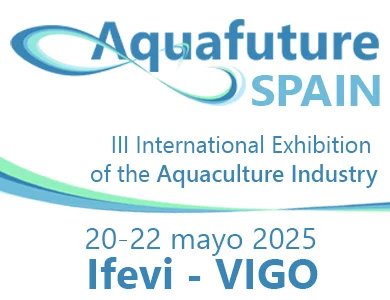
by Kaja Skjærven, Institute of Marine Research
Behaviour and environmental conditions affect how genes are expressed. New research demonstrates how epigenetics may be highly relevant to the aquaculture industry.
“Epi”, which comes from Greek, means on or above. Epigenetics describes a layer of information – a tag, if you like – that is added on to the gene and regulates its use.
Small epigenetic tags can attach themselves to genes during an organism’s life, locking in environmental influences on how genes are expressed in the organism. Specific tags can also be passed on from parents to the next generation, thereby affecting the inheritance of characteristic traits (phenotypes).
In other words, the old phrase stating that “old habits die hard” may not just be rooted in the mind through thought patterns, but also attached to your genes.
Research drew on knowledge about mice
One of the most important epigenetic studies shows that the nutrition of a mother mouse determines whether her young become yellow and fat or brown and thin.
Fascinated by that result, we began to investigate whether the phenotypes of fish are also influenced epigenetically by the feed they are given.
This is of great importance in aquaculture, as the tags may either stimulate the development of beneficial traits or may possibly hinder the development of robust fish.
Tags can be inherited in fish
Initially we used zebrafish to test whether the feed given to the fish had an impact on their offspring.
In one experiment, we gave the parent fish a feed with low vitamin B content, whereas the offspring received sufficient vitamin B. Then we compared them with a control group where both the parents and offspring received sufficient vitamin B (see https://pubmed.ncbi.nlm.nih.gov/27731423/ ).
When the offspring had reached adulthood, we examined their livers more closely.
The first thing we noticed was that the experimental group had lighter-coloured livers than the control group. More detailed investigation revealed that the liver cells contained more fat, which is associated with poor health.
Moreover, analysis showed that genes involved in fat regulation were used differently by the two groups.
Thousands of tags on the offspring’s DNA had been changed by the quantity of vitamin B in the feed consumed by the parents.
This was the first result to verify that fish feed can affect the health through epigenetics of fish offspring, either through changes in inherited tags on DNA or through the nutrients allocated in the yolk sac (see https://pubmed.ncbi.nlm.nih.gov/29445184/ ).
The result indicates a possibility for the aquaculture industry to epigenetically control the phenotype of the fish it produces, ensuring that the parents’ feed doesn’t become an old habit that dies hard in their offspring.
We have recently completed a research project on salmon in which we addressed four epigenetic questions that are relevant to the aquaculture industry.
The first question we wanted to look at was whether the tags and the way in which genes were used were influenced by the ingredients in the feed given to salmon.
It turned out that the micronutrients in the feed can directly affect the tags in a dose-dependent manner. This was particularly true of genes that play a key role in fat regulation (see https://pubmed.ncbi.nlm.nih.gov/33315488/ ).
If the ingredients in the feed do not meet the needs of the fish, the tags can become an old habit that dies hard and thereby weakens fish health.
Epigenetic preparation of pre-smolts
The second matter we investigated was whether the micronutrients in feed affect growth during smoltification by regulating epigenetic tags which regulated which genes are expressed.
Once again we observed that the feed affected how the genes were used prior to smoltification. But the impact was greater three months after smoltification, while growth during the post-smolt stage was improved (see https://pubmed.ncbi.nlm.nih.gov/34176547/ ).
These results showed that the feed given at the pre-smolt stage may provide the basis for successful smoltification. The results relating to the epigenetic tags will be published in 2022.
For the aquaculture industry, the environmental conditions in which pre-smolts are kept may be of vital importance. If the environmental conditions are not favourable, the tags may become an old habit that dies hard regardless of how they are treated during the post-smolt stage.
Timing of spawning affects epigenetic inheritance
The third issue we studied was whether the timing of spawning in salmon could affect their offspring.
Here we haven’t quite finished analysing the tags. But preliminary results show that micronutrient levels in eggs varied depending on the timing of the spawning season (see https://pubmed.ncbi.nlm.nih.gov/32376458/ ), as well as a new paper that has been accepted for publication in the journal Aquaculture).
The extent of these results – in other words the dependence of epigenetic tags on micronutrients, results relating to how genes are used, and advanced analysis of the tags – suggests that the foundations for various phenotypes are confined through “inheritance” from the mother.
“Inheritance” includes both inherited tags on the mother’s DNA as well as the influence through the contents of the yolk sac, including micronutrient levels. The broodstock’s genetic material (its DNA sequence) in the various spawning seasons investigated here originated from the same broodstock line, and all eggs were fertilized by the same father.
For the aquaculture industry, there is a possibility for adjusting the environmental factors (nutrition, feeding regimes, nutrient status, temperature and light) that broodstock are exposed to in order to fine-tune the epigenetic tags in the offspring and thereby alter specific traits (phenotypes).
Is there epigenetic inheritance from the father?
In several model organisms, it has been found that the inherited tags of the father can also be passed on to offspring.
We have started by analysing whether the broodstock father’s nutrition can affect the epigenetic tags in the tissue containing the DNA that will be passed on to the next generation. The results showed that the tags on DNA in gonadal tissue is also highly sensitive to the broodstock father’s nutrition (see https://pubmed.ncbi.nlm.nih.gov/35144563/). It is not yet known whether these tags are passed on to the next generation, but based on research involving other model organisms, we would expect so.
From the above, it is clear that epigenetic research is of great relevance to the aquaculture industry. Amongst other things, it can uncover the ways in which fish farmers can best adapt their fish to life in a cage by adjusting the inherited tags, so that the old habits of their broodstock mothers and/or fathers don’t die hard in the offspring.
Contact
Kaja Skjærven
Forsker
97142241
Kaja.Skjaerven@hi.no
References (open access)
Skjærven, K., Jakt, L., Dahl, J. et al. Parental vitamin deficiency affects the embryonic gene expression of immune-, lipid transport- and apolipoprotein genes. Sci Rep 6, 34535 (2016). https://doi.org/10.1038/srep34535
Skjærven, K.H., Jakt, L.M., Fernandes, J.M.O. et al. Parental micronutrient deficiency distorts liver DNA methylation and expression of lipid genes associated with a fatty-liver-like phenotype in offspring. Sci Rep 8, 3055 (2018). https://doi.org/10.1038/s41598-018-21211-5
Takaya Saito, Paul Whatmore, John F. Taylor, Jorge M.O. Fernandes, Anne-Catrin Adam, Douglas R. Tocher, Marit Espe & Kaja H. Skjærven (2021) Micronutrient supplementation affects transcriptional and epigenetic regulation of lipid metabolism in a dose-dependent manner, Epigenetics, 16:11, 1217-1234, DOI: 10.1080/15592294.2020.1859867
Adam, A., Saito, T., Espe, M., Whatmore, P., Fernandes, J., Vikeså, V., & Skjærven, K. (2021). Metabolic and molecular signatures of improved growth in Atlantic salmon (Salmo salar) fed surplus levels of methionine, folic acid, vitamin B6 and B12 throughout smoltification. British Journal of Nutrition, 1-14. doi:10.1017/S0007114521002336
Kaja H. Skjærven, Eystein Oveland, Maren Mommens, Elisa Samori, Takaya Saito, Anne-Catrin Adam, Marit Espe. 2020. Out-of-season spawning affects the nutritional status and gene expression in both Atlantic salmon female broodstock and their offspring. Comparative Biochemistry and Physiology Part A: Molecular & Integrative Physiology, Volume 247, 2020, 110717, ISSN 1095-6433, https://doi.org/10.1016/j.cbpa.2020.110717.
Saito, T., Whatmore, P., Taylor, J.F. et al. Micronutrient supplementation affects DNA methylation in male gonads with potential intergenerational epigenetic inheritance involving the embryonic development through glutamate receptor-associated genes. BMC Genomics 23, 115 (2022). https://doi.org/10.1186/s12864-022-08348-4

